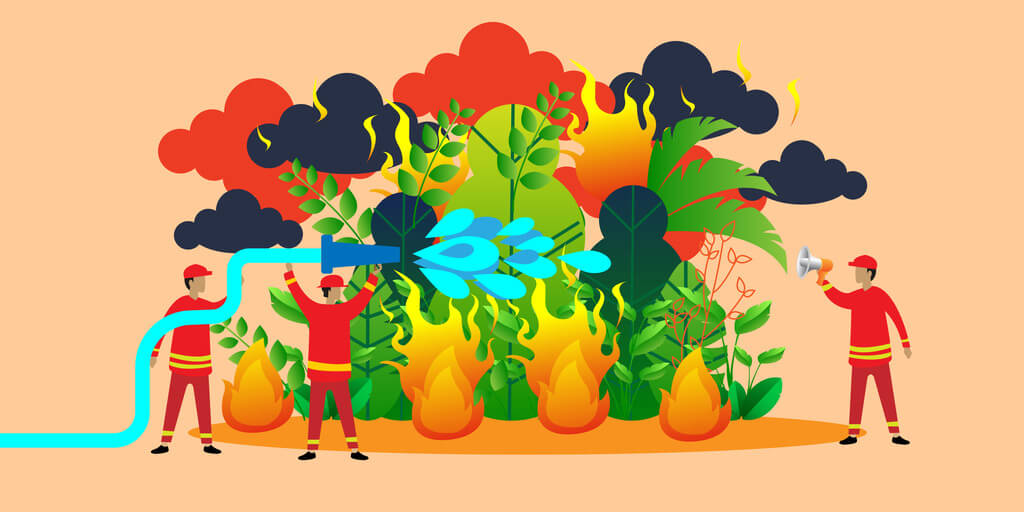In shipping more than 81,500 tonnes last year and accounting for an import market share of 28.7%, Brazil, as the European Union’s largest beef and veal supplier, could find its grip under threat.
Supermarket chains across Belgium, France, The Netherlands and the United Kingdom (UK) have cut ties with Brazilian beef linked to the world’s largest beef company JBS S.A. after investigations tracked its products to deforestation.
The countries made their decision in December following an investigation by social awareness website Repórter Brasil in partnership with the global advocacy organisation Mighty Earth that tracked the deforestation-linked beef products including jerky, corned beef and fresh prime cuts to European retail store shelves.
Repórter Brasil identifies and makes public situations violating labour rights and causing socio-environmental damage in Brazil with the view to mobilising social, political and economic leaders to build a more just, egalitarian and democratic society that respects human rights.
“This is a watershed moment because several huge supermarkets across Europe are saying an emphatic ‘No!’ to Brazilian beef over deforestation concerns,” Mighty Earth Europe Director Nico Muzi said in a press statement.
The research found multiple examples of “cattle laundering” – beef processed by JBS at its slaughterhouses in low-deforestation areas such as São Paulo, but sourced from cattle raised and fed on farms officially sanctioned and embargoed for illegal deforestation in the Amazon rainforest or tied to the destruction of the Cerrado woody savannah and Pantanal tropical wetlands.
In April last year Mighty Earth released an analysis of deforestation data, showing JBS was the worst-performing meatpacker. It has been linked to 100,000 hectares of clearance over the past two years. According to Global Forest Watch, from 2002 to 2020, Brazil lost 26.2 million hectares of humid primary forest, corresponding to a 7.7% total area decrease.
Lidl Netherlands, part of the German retailer chain with over 11,000 locations globally and revenue exceeding $75 billion, committed to stop selling beef of South American origin as of January 2022.
“Protecting biodiversity, including preventing deforestation, are central themes within our sustainable purchasing policy,” said Renée Bijvoets, Lidl Netherlands sustainability manager.
“Given the risk of deforestation linked to beef with a South American origin, we have decided, together with our supplier, to look for alternative sourcing. The result is, from January 2022 onwards we will not sell beef with a South American origin in our fixed assortment.”
Carrefour Belgium promised to give up the Jack Link’s beef jerky in Belgium and the larger Carrefour Group committed to increasing Brazilian beef surveillance in its operating countries.
In the UK, international food and drink company Princes Group advised it hasn’t placed a contract for corned beef from JBS since November 2020 and was committed to a new sourcing policy for Brazilian material that includes zero deforestation.
While these decisions can be perceived as harbingers of a new regime for EU-based companies, the actions were voluntary.
In acknowledging beef, palm oil, soybeans, wood, cocoa and coffee consumption drive deforestation, the European Commission proposed new rules in November last year. These will ban deforestation-related commodities and products on the market.
As part of the European Green Deal, the directions will require operators to exercise due diligence to rule out production from deforested or degraded land after 31 December 2020. Companies must also perform mitigation measures including satellite monitoring tools, field audits, capacity-building among suppliers or isotope testing to check a product’s origin.
Read - Traceability: the key ingredient for a ‘clean’ steak?
Read - Q&A with Ali Hussein El Zoghbi, VP of Brazil’s FAMBRAS, South America’s largest halal certifier
“Our deforestation regulation answers citizens' calls to minimise the European contribution to deforestation and promote sustainable consumption,” said Executive Vice-President for the European Green Deal Frans Timmermans.
JBS ended the fiscal year 2021 with revenue of R$350.7 billion ($71 billion) and net income of R$20.5 billion ($4.15 billion) – a 345.5% hike year-on-year. During the year the company JBS launched the Transparent Livestock Platform, a tool that uses blockchain technology to trace cattle and monitor the supply chain by 2025 for all biomes in Brazil.
In 2021, Brazil exported meat and edible meat offal worth over $18 billion to the Organisation of Islamic Cooperation (OIC) nations, a 15% hike on 2020. The three largest importers were the United Arab Emirates (UAE) at $3.8 billion followed by Saudi Arabia ($900 million) and Egypt ($800 million).
© SalaamGateway.com 2022. All Rights Reserved

